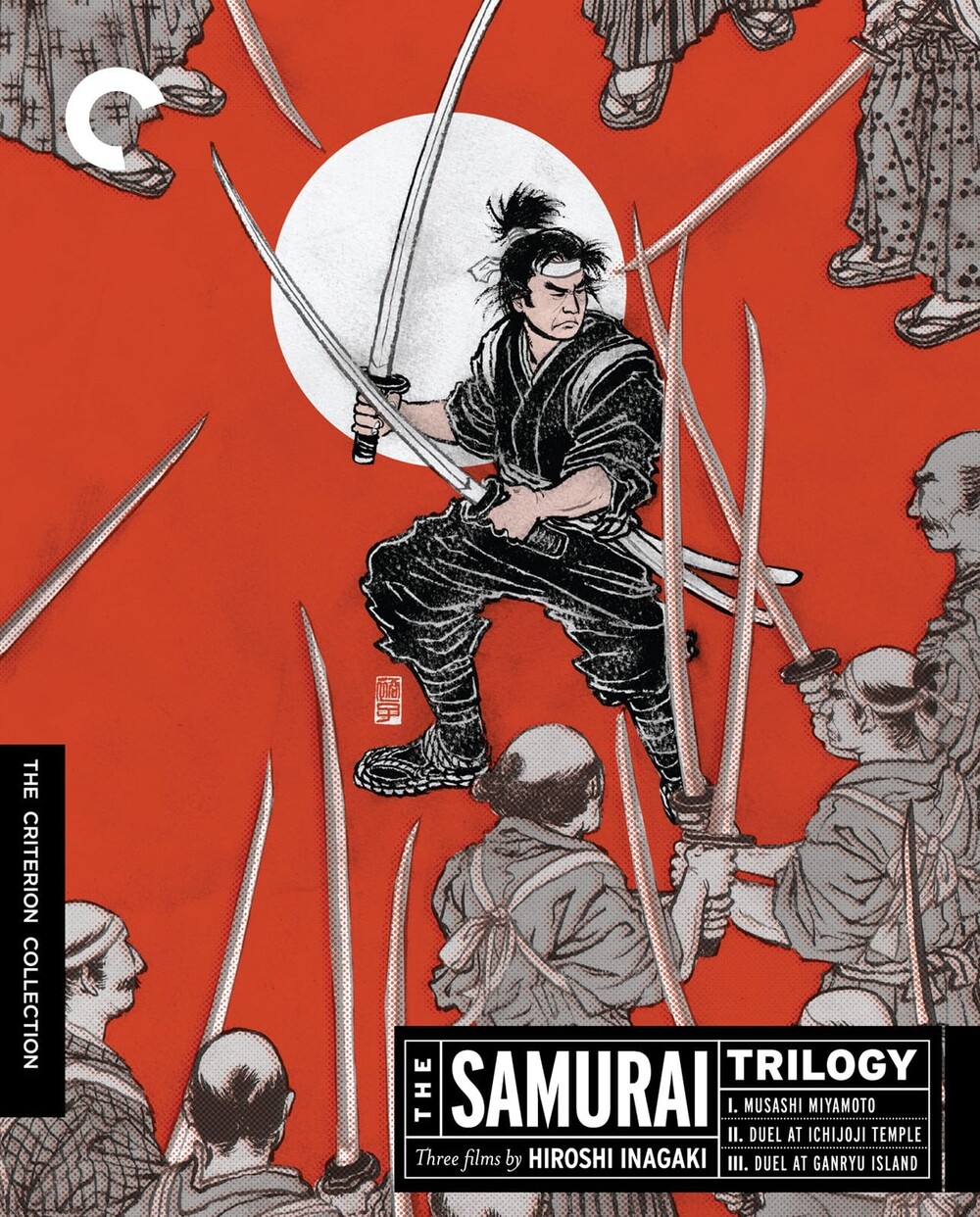-
Miyamoto Musashi kanketsuhen: kettô Ganryûjima / Samurai III: Duel at Ganryu Island (1956) - An empathic fencer becomes an accomplished ronin - 9/10 (30/04/19)

Samurai III: Duel at Ganryu Island is the last part of the so-called Samurai trilogy about accomplished artist, author, fencer, philantrophist and philosopher Miyamoto Musashi. While the first movie focused on the protagonist's challenging life as a teenager and the second film portrayed the changes he underwent in his early twenties, this movie shows how the protagonist became one of the most prestigeous samurai in Japanese history in his late twenties and beyond.
The plot focuses on the fight between ronin Miyamoto Musashi and samurai Kojiro Sasaki who were the most skilled fighters of their time. It also shows how Miyamoto Musashi finishes his traveling and establishes a little farm with a cunning boy and impuslive horse trader who want to become his disciples. Miyamoto Musashi has become calmer, gentler and smarter as he protects local villagers against a group of bandits. The movie also explores Miyamoto Musashi's relationship to faithful but unstable Otsu and manipulative yet passionate Akemi.
This movie is the greatest part of the trilogy because it features everything that made the first two films great but increased the overall quality of these components. The cinematography is most impressive and especially the final duel on the island is beautifully choreographed and shot. The character development is particularly strong for both side character and the protagonist who truly becomes an accomplished ronin by the end of the trilogy. The fight scenes are diversified and feature a much more intellectual note than the two previous entries. In one scene, Miyamoto Musashi scares off a group of angry gamblers by dexterously removing flies from his bowl of food with his chopsticks. The different subplots come together and the fates of the different characters are revealed until the end of the titular duel. It would have even been possible to make another movie telling how the surviving characters continued to live but this lack of proper conclusion prevents the story from overstaying its welcome and invites to purchase Yoshikawa Eiji's novel Musashi.
On a side note, this movie indirectly promotes celibacy. Miyamoto Musashi only becomes an accomplished ronin when he renounces his love of woman even though his convictions are shown to be somewhat shaky towards the end of the movie. His decision isn't complicated to understand as both Akemi and Otsu exaggeratedly stalk the protagonist and distract him from his way of the sword on numerous occasions. Some people might describe these scenes as misogynistic but they aren't. It's actually refreshing to see a rational alternative to desperately trying to be in a relationship.
In the end, this concluding third part is also the greatest film of the impressive Samurai trilogy that has stood the test of time as some of the greatest jigaideki movies ever made. If you like this movie, make sure to check out the impressive Zatoichi movie collection as well as Kurosawa Akira's works of the fifties and sixties.
« Zoku Miyamoto Musashi: Ichijôji no kettô / Samurai II: Duel at Ichijoji Temple (1955) - A skilled fencer who needs to learn about chivalry - 8/10 (30/04/19)Timeless synth-pop - A review of Pet Shop Boys' Inner Sanctum »









